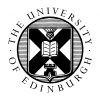© Pint of Science, 2025. All rights reserved.
Bees need flowers and flowers need bees –this we all know. But how have the changes in both affected the current crisis in bee populations? Could genome mapping hold the key to bee health, or could molecular changes in plants attract more bees to them? Join respected experts from the University of Edinburgh for a buzzing evening!
The Seven Habits of Highly Successful Snapdragons
Professor Andrew Hudson
(Professor of Developmental Biology. School of Biological Sciences)
The concept of adaptation is fundamental to evolutionary biology and important in predicting how new varieties of crops of livestock might perform. But what do we mean by adaptation, how can we measure it and can it be predicted? We’ll look at some of these questions in snapdragons—a group of plants with a long history of genetics research that are found in different, often extreme environments (and in gardens).
Mapping genetic diversity and health of honey bees in the UK
Dr Mark Barnett
(Research fellow at The Roslin Institute, University of Edinburgh )
Dr Tim Regan
(Research Fellow at Roslin Institute, University of Edinburgh)
Many insect pollinators are in a crisis of decline worldwide. This is thought to be due to a combination of habitat loss, pests and diseases, pesticide use and climate change. We have used the latest sequencing technology to examine the genetic diversity of honey bees kept in the UK and to find out which organisms are living in the bees (beneficial bacteria, pests and diseases). This allows us to look at the health status of a honey bee colony and has the potential to identify new pests and diseases. Better understanding of the challenges to honey bee health is a crucial step towards tackling
Map data © OpenStreetMap contributors.
